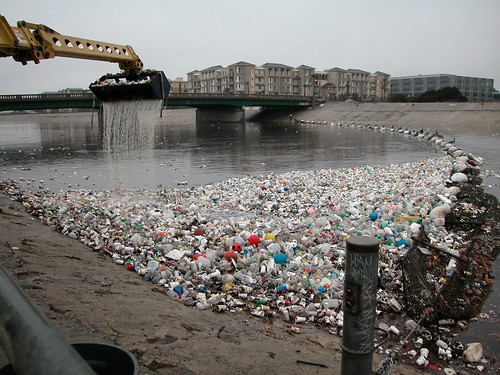Too Much, Too Soon?
After the natural disaster and nuclear crisis in Japan, Germany took a 180 degree turn on its own nuclear policy. Instead of extending the life of the country’s 17 nuclear reactors, the ruling government voted to have all nuclear power plants phased out of the national grid by 2022, and the 8 oldest have already been shut down permanently.
The New York Times had an interesting article about what that actually means for Germany in the short term. Of course, environmentalists and anti-nuclear activists were happy to hear 8 reactors were being shut down right away. But in the article, some critics say the decision is actually bad for the environment. Because Germany has to find power sources elsewhere – and because the country is not ready just yet to replace all nuclear energy with renewable sources – energy suppliers have to go back to coal and fossil fuel plants to make sure there’s enough power to go around. And in the meantime, Germany has been forced to import energy from neighboring countries like the Czech Republic and France, which both depend heavily on nuclear power to produce electricity. Plus, with winter approaching, Germany could face blackouts when the demand for electricity is too much.
So we wanted to put the question out there: weighing the pro’s and con’s, what do you think of Germany’s decision to shut down its nuclear power plants?
What’s your plastic footprint?
With so much talk of climate change and carbon dioxide emissions nowadays, most people are familiar with a carbon footprint. But what about a plastic footprint?
An initiative in Hong Kong called The Plastic Disclosure Project plans to send out questionnaires to companies and institutions around the world asking them to assess, monitor and report their use of plastic. The aim is to get them to cut their plastic consumption as well as try to change the awareness and behavior of big users of plastic.
Environmentalists have long complained that plastic pollution has become a major threat to the world’s water bodies and the environment. If the plastic footprint becomes as widespread as its carbon counterpart, the project may just lead to a real clean up.
Cities of the Future
The new trend in green living is building entire green cities – like Tianjin Eco-City in China, which is a joint project between the Chinese and Singaporean governments to create a completely eco-friendly metropolis.
It’s expected to be up and running by the year 2020 and feature the latest in green technology. People who live in Tianjin will be able to choose which eco-friendly landscape they like, from green to a sun-powered solarscape. The whole city will cover about 30 kilometers and transportation will depend on an advanced lightrail system. And about 350,000 will live in the urban center. What’s more, Tianjin Eco-City will make use the latest sustainable technologies, like solar power, wind power, rainwater recycling, and desalination of sea water to create a smooth-running green paradise.
It’s expected to be a model for the rest of China, but could it also serve as an example for the rest of the world?
Fleas to the Rescue?

Oregon State University has discovered a curious organism: a freshwater flea that eats deadly fungus in the water. What’s so special about that? Well, the fungus is responsible for the decline in the world’s amphibian population.
Referred to as a “chytrid” fungus, it infects amphibians and can kill them by disrupting their electrolyte balance. But in tests conducted by researchers, the tiny aquatic fleas ate the spores…giving them hope that this could be the solution to the crisis facing the global amphibian population.
Who would’ve thought a flea could save the day?
SEED – for a green future

Have you heard of the SEED initiative? It’s a “global partnership for action on sustainable development and the green economy” founded by international organizations UNEP, UNDP and IUCN in 2002. SEED allows small entrepreneurs creating sustainable ideas and green-friendly concepts. With the support of SEED, those entrepreneurs can start producing on a bigger scale, making it possible to reach more people and make a bigger impact.
What’s more, SEED also gives out awards to social and environmental entrepreneurs in countries with developing or emerging economies. So if you have a great idea, you too can submit your project to SEED and could win an award! More on SEED in the next blog entry…










Feedback